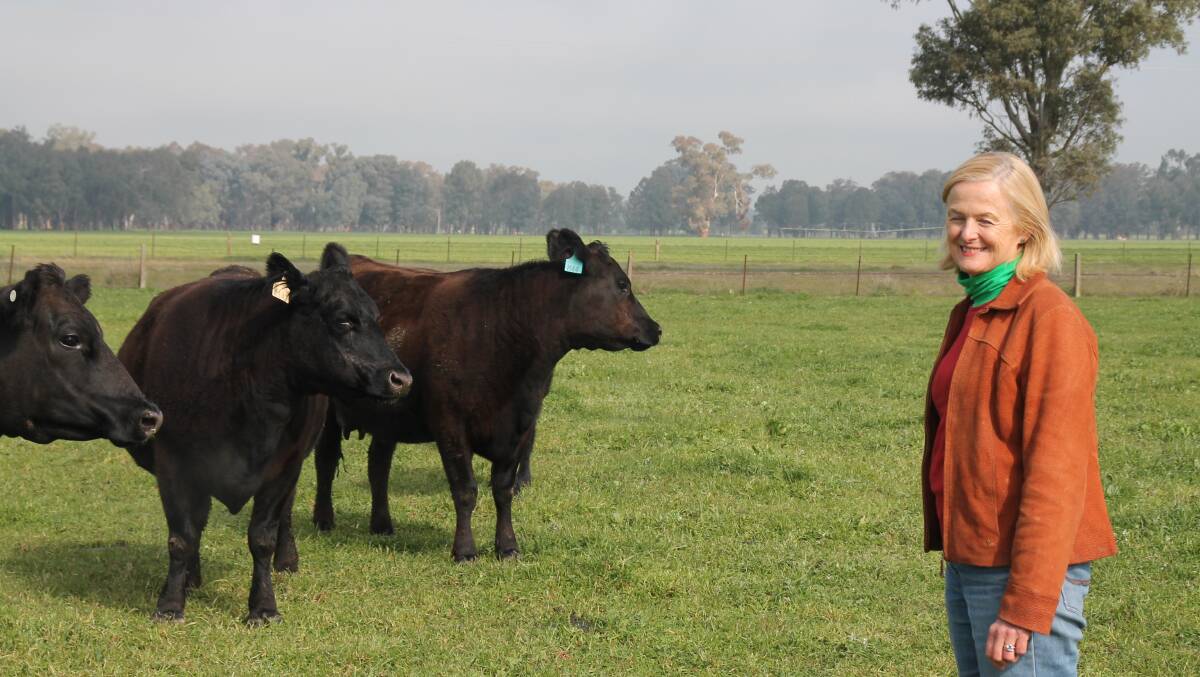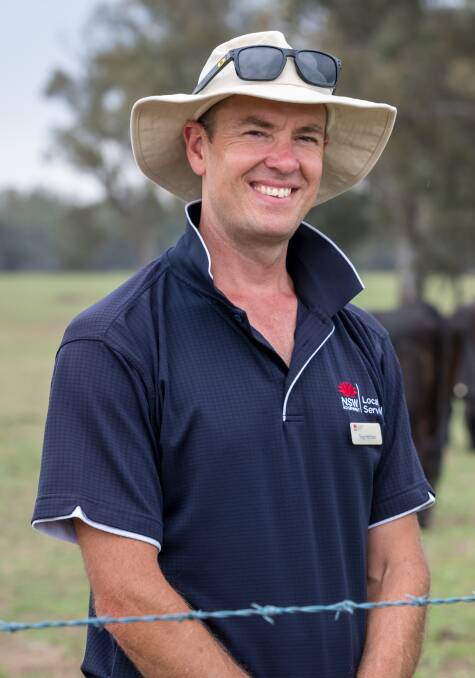
A southern NSW Angus stud operation has been given approval to build an irrigation project which they hope will drought proof their future.
Bryan and Lucinda Corrigan, and their children Ruth and Anthony run an Angus seed stock operation, with around 3500 head of cattle spread across just over 3200 hectares on properties at Holbrook on the Hume Highway and west at Culcairn.
Their Rennylea Angus stud is over 50 year old, and the original Holbrook property has been in Bryan's family for over a century.
Annually they turnoff around 1500 head. They sell around 500 bulls to clients in New South Wales, Victoria, Queensland and the Northern Territory. Young surplus females primarily go into Wagyu herds for breeding, while cull stock go to the processors. They also provide steers to feedlotters, and background feeders.
Read more:
For the Corrigans the season this year has been kind.
"We've done 4000 km this week up to Armidale and across the state, so I would regard this as probably as good as anywhere in New South Wales at the moment," Mrs Corrigan said.
"We've had a dry July, so we are going into spring with concern. The springs here are all about what happens in August, September and early October. So we are hoping for a heavy rain event before the end of August."
In a bid to remove that reliance on seasonal rains The Corrigans are putting in place an irrigation project at Culcairn which they hope will ensure they can feed their breeding stock no matter what the season throws at them.
"We are a genetic's operation, so we can't really sell our our cows," Mrs Corrigan said.
"We've got 50 to 60 years of breeding in the cow herd, so what we are trying to do is develop a system which we call sustainable intensification."
The project involves converting two paddocks, of around 66ha in total from pasture cropping to forage production, growing either maize or sorghum, with two pivot irrigators to draw up to 270 megalitres from a shallow bore.
"We will have the heifers in a small containment area the other side of the creek, and they will be fed silage which we have grown," Mrs Corrigan said.
"We will feed them there through to critical mating weights. The autumns here are pretty dry and we want to preserve our pasture and soil."
Climate changing
Changes in climate patterns are another reason the Corrigans are drought proofing now.
"We've got over 100 years of records, and what we are seeing is a decrease in our growing season rainfall," Mrs Corrigan said.
"we are [also] seeing a steady decline in our total rainfall, [and] more out of season rainfall, so we are actually seeing more summer storms.
"If it was just Bryan and I we would probably just keep doing what we are doing. But because our children are in the business we are looking at the future.
"It is a change in cost structure. This is taking a different pathway and I guess it's got more risk, but we think the risk is is calculated."
Tree removal

The irrigation development will mean the removal of nine yellow box trees. That needed approval under the land management code of practice which is laid out in the state's Local Land Services Act.
The Land Services Officer with the Murray office, Troy Hitchon had the job of surveying the native vegetation on the Corrigan's properties.
"The first thing you do is look at their holding as a whole," he said.
"Then you work out how much remaining vegetation is on there to determine how clear it really is. In their instance they had a lot of re-vegetation and a lot of existing trees that counted in their favour.
The Corrigans have been planting trees across their properties since 1990, which made the approval process clean cut.
"We have a long history of treeplanting," Lucinda Corrigan said.
"What [Troy] found when he did the mapping was that we had nearly 15 per cent tree cover across the farms. So it meant we could take those nine mature yellow box trees out.
"They are actually going down to the Murray River to be used to help regenerate fish habitats."
Mr Hitchon said the Corrigans willingness to be part of the process meant it was pretty straightforward.
"They were proactive and willing to engage in the process and it worked out fairly simple and painless for them," he said.
Mrs Corrigan said work on the project will start soon.
"The pivots are ordered from California," she said.
"We have an anticipated completion date of the end of September. Once the systems arrive it'll be all systems go to get the trees out and and ship them off, and then the irrigation guys will come in and do the rest of it."
Start the day with all the big news in agriculture! Click here to sign up to receive our daily Farmonline newsletter.

